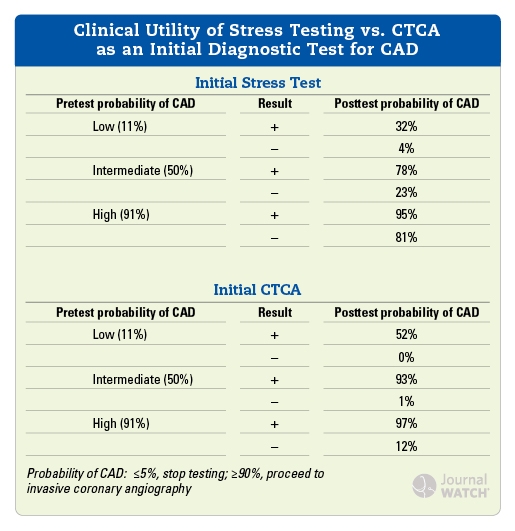 The accuracy of 64-slice computed tomographic coronary angiography (CTCA) and its ability to direct revascularization in patients with acute chest pain syndrome (ACPS) was investigated in an article published in The American Journal of Cardiology on 08/09/2010.
The accuracy of 64-slice computed tomographic coronary angiography (CTCA) and its ability to direct revascularization in patients with acute chest pain syndrome (ACPS) was investigated in an article published in The American Journal of Cardiology on 08/09/2010.
Compared with invasive coronary angiography (ICA), the operating characteristics of CTCA (per-patient analysis) were excellent, with a sensitivity of 98%, a specificity of 100%, a positive predictive value of 100%, and negative predictive value of 97%. CTCA correctly identified 40 patients (100%) who underwent revascularization and 61 (91.0%) who were treated medically (κ = 0.88, 95% CI 0.79 to 0.97). In conclusion, CTA might represent a single modality that could be used to triage a wide spectrum of patients with ACPS and could have the potential to rule out coronary disease and identify those who might require revascularization.
“… CTCA was more accurate than stress testing, but clinical probability of disease should also guide the choice of noninvasive test…”
(From: The Role of Computed Tomographic Coronary Angiography in the Diagnosis of Coronary Artery Disease, Ann Intern Med 2010; 152:630
Despite this, CCTA has not been accepted widely as a screening test. Cardiologists have a vested interest against the routine use of CCTA, because the majority of their revenues are generated by nuclear scans and invasive catheter angiography. CCTA would interfere with that.
Dr T,
http://www.cardiac-risk-assessment.com/
Ref: Usefulness of Computed Tomographic Coronary Angiography in Patients With Acute Chest Pain
With and Without High-Risk Features, Benjamin J.W. Chow, MD et al. Am.J.Cardiology, 08/09/2010

